Embarking on the journey of learning to play the piano can be an exhilarating experience, filled with both challenges and triumphs. This guide is designed to assist you in navigating the landscape of piano lessons, ensuring you connect with the best instructors in your area who can nurture your musical aspirations. Whether you dream of playing for personal enjoyment or aspire to perform on grand stages, understanding how to find the right teacher is crucial.
Before you dive into lessons, take a moment to reflect on your musical goals. Are you looking to play your favorite songs at home, or do you envision yourself performing in front of an audience? Perhaps you want to gain a deeper understanding of music theory or composition. By identifying your objectives, you can tailor your search for a teacher who aligns with your aspirations.
Searching for a local piano teacher can be daunting, but a systematic approach can simplify the process. Start by exploring various resources:
- Local music schools and community centers often offer piano lessons.
- Online directories such as TakeLessons or Thumbtack can help you find instructors nearby.
- Community bulletin boards, both physical and digital, can provide leads on local teachers.
Once you have a list of potential instructors, it’s wise to delve deeper into their backgrounds and teaching styles.
In today’s digital world, the opinions of others can provide invaluable insights. Look for online reviews and testimonials from former students. Websites like Yelp or Google Reviews can reveal a teacher’s effectiveness and teaching style. Additionally, don’t hesitate to ask around. Personal recommendations from friends, family, or fellow musicians can lead you to trustworthy instructors.
As you research, keep an eye out for any recurring themes in the feedback. Do students praise a teacher’s patience and adaptability? Are they noted for their engaging lessons? These factors can significantly influence your learning experience.
Every piano instructor has a unique approach to teaching. Some may prioritize classical techniques, while others might focus on contemporary styles or improvisation. It’s essential to find a teacher whose philosophy resonates with your learning preferences. If you’re drawn to jazz, for instance, seek out an instructor who specializes in that genre.
Additionally, consider a teacher’s credentials. While formal training can enhance a teacher’s credibility, effective communication and the ability to inspire students are equally important. You might find that a teacher with less formal experience but a natural gift for teaching could be the perfect fit for you.
Many instructors offer trial lessons, which can be a fantastic opportunity to assess compatibility before making a commitment. During these initial sessions, you can gauge the teacher’s style and see how well they communicate concepts. Pay attention to how they interact with you and whether they create a comfortable learning environment.
However, be mindful of any red flags. If you sense a lack of patience or find the teaching style too rigid, it may be a sign to continue your search. Remember, the right teacher can make all the difference in your learning journey.
Understanding the financial commitment of piano lessons is crucial. Prices can vary significantly based on factors such as location, instructor experience, and lesson length. On average, you might expect to pay anywhere from $30 to $100 per hour. It’s beneficial to familiarize yourself with local pricing to ensure you’re receiving fair value.
Don’t forget to inquire about discounts or package deals. Many teachers offer reduced rates for bulk lessons or group classes, which can make your piano education more affordable without compromising quality.
Once you’ve found the right teacher, establishing a regular practice schedule is essential for progress. Collaborate with your instructor to create a routine that fits your lifestyle. Short, focused practice sessions can be more effective than infrequent, lengthy ones. Aim to practice consistently, even if it’s just for 20 minutes a day.
Setting small, achievable goals can also keep you motivated. Celebrate your milestones, whether it’s mastering a new piece or improving your technique. Each small victory adds to your overall progress and keeps the excitement alive in your musical journey.
In conclusion, navigating the world of piano lessons requires thoughtful consideration and research. By clarifying your goals, finding the right teacher, and establishing a solid practice routine, you can embark on a rewarding musical journey that resonates with your aspirations. Remember, the right guidance can unlock your potential and transform your passion for music into a lifelong pursuit.
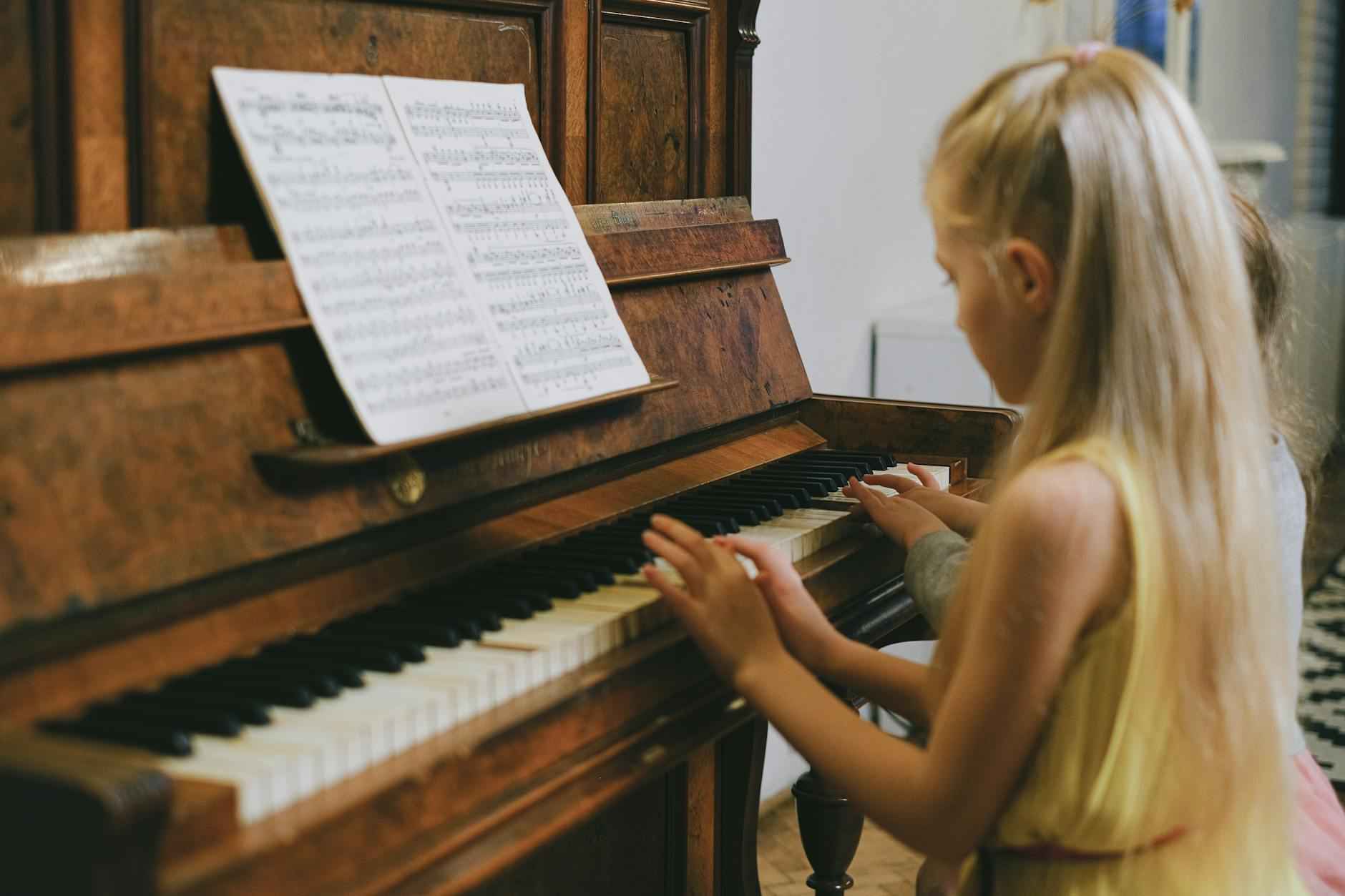
Understanding Your Learning Goals
Before diving into the world of piano, it’s essential to take a moment to reflect on why you want to learn this beautiful instrument. The motivations behind learning the piano can vary greatly from person to person. Are you looking to play your favorite songs for fun during family gatherings, or do you dream of performing on stage in front of a captivated audience? Understanding your personal objectives will not only guide your learning path but will also influence the type of teacher you seek and the methods you use.
Many beginners start playing the piano purely for enjoyment. Perhaps you’ve always wanted to learn how to play that one song that resonates deeply with you, or you envision yourself entertaining friends with your musical talents. This approach often emphasizes a more relaxed learning style, where the focus is on enjoyment rather than strict technique. In this case, you might find that a teacher who encourages creativity and exploration will suit you best.
On the other hand, if you aspire to take your piano skills to a professional level, your learning goals will be quite different. You may want to delve into music theory, practice advanced techniques, and prepare for performances. This path often requires a more structured approach, with a teacher who has experience in preparing students for auditions or competitions. Identifying your goals early on will help you choose a teacher who aligns with your aspirations.
Once you’ve reflected on your motivations, it’s time to set some clear objectives. Consider what you would like to achieve in the short term and long term. For instance, a short-term goal could be learning to play a specific song within a month, while a long-term goal might be preparing for a recital in a year. Writing these goals down can provide you with a roadmap for your learning journey.
Moreover, don’t hesitate to reassess your objectives as you progress. Your interests and capabilities may evolve over time, and that’s perfectly normal. If you initially started for leisure but found a passion for performing, embrace that change and adjust your goals accordingly.
With your objectives in mind, the next step is to find a piano teacher who can help you achieve them. Start by researching local instructors and exploring their backgrounds. Look for teachers who have experience with students who share similar goals to yours. For instance, if you aim to perform, seek out instructors with a strong performance background and a track record of preparing students for recitals.
When evaluating potential teachers, consider their teaching style. Some may focus on classical techniques, while others might emphasize improvisation and creativity. It’s essential to find someone whose approach resonates with your learning style. You might even want to schedule trial lessons with a few instructors to see who you connect with best.
Additionally, don’t overlook the importance of communication in your learning experience. A good teacher should be able to explain concepts clearly and be patient as you progress. Look for someone who encourages questions and fosters an open dialogue. This can significantly enhance your learning experience and keep you motivated.
Once you’ve found the right teacher and established your goals, the next crucial step is to create a consistent practice routine. Regular practice is key to mastering the piano, so it’s important to carve out time in your schedule. Work with your teacher to develop a routine that fits your lifestyle—whether that means daily short sessions or longer practices a few times a week.
As you practice, remember to set achievable milestones. Perhaps you want to master a particular piece or improve your sight-reading skills. Celebrate these small victories along the way, as they can help maintain your enthusiasm and motivation. Acknowledge that learning an instrument is a journey filled with ups and downs, and that perseverance is essential.
In conclusion, understanding your learning goals is the cornerstone of your piano journey. Whether you aim to play for fun or aspire to perform professionally, setting clear objectives, finding the right teacher, and establishing a consistent practice routine will pave the way for your success. Embrace the process, and enjoy every note along the way!
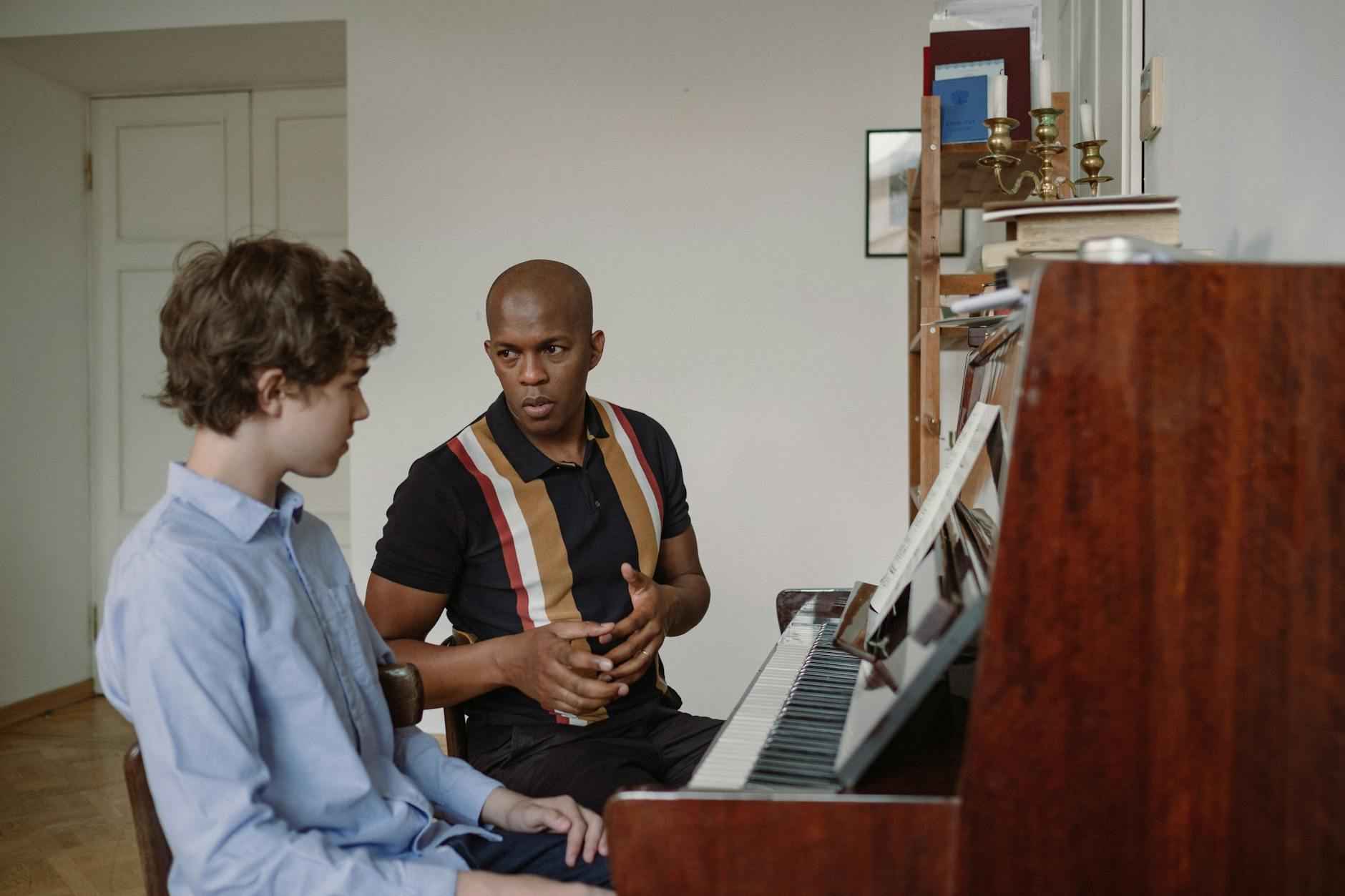
Researching Local Piano Teachers
Finding the right piano teacher can be a daunting task, especially when you’re eager to embark on your musical journey. The abundance of options available can sometimes lead to confusion rather than clarity. However, by taking a systematic approach, you can simplify the process and discover an instructor who not only meets your needs but also inspires you to reach your musical goals. Start by exploring local listings, online directories, and community boards to compile a list of potential instructors in your area. This foundational step sets the stage for a more informed search.
In today’s digital landscape, the internet is an invaluable tool for finding piano teachers. Websites like Yelp, Google Maps, and specialized music education platforms offer extensive listings of instructors in your locality. These platforms often include essential information such as contact details, pricing, and available lesson times. Additionally, they provide access to user-generated reviews, which can give you insights into the experiences of previous students. For instance, a teacher with numerous positive reviews may indicate a proven track record of effective teaching.
Moreover, consider checking community boards and local music schools. Many music academies maintain a roster of qualified instructors, and community centers often host piano classes that might not be widely advertised. By tapping into these resources, you can widen your search and discover hidden gems in your community.
Once you have compiled a list of potential teachers, it’s time to delve deeper into their qualifications and teaching styles. Not all instructors are created equal, and understanding their backgrounds can significantly impact your learning experience. Look for teachers who have formal training in music education or performance, as this often correlates with a more structured and effective teaching approach.
It’s also essential to consider the teaching styles of the instructors you are evaluating. Some may focus on classical techniques, while others might emphasize popular music or jazz. Think about your musical interests and goals—do you want to play Beethoven, or are you more inclined towards contemporary pop hits? Finding a teacher whose style aligns with your aspirations can make your lessons more enjoyable and productive.
Additionally, don’t hesitate to ask potential instructors about their teaching philosophy. A good teacher should be able to articulate how they approach lessons and adapt their methods to suit different learning styles. This conversation can also give you a sense of their personality and whether you might enjoy working with them.
Many piano teachers offer trial lessons, which can be an excellent opportunity to assess compatibility before making a long-term commitment. During these sessions, you can gauge not only the instructor’s teaching methods but also their ability to connect with you personally. Pay attention to how they communicate complex concepts and whether they encourage questions and exploration.
In a trial lesson, you might cover basic techniques and assess your current skill level. This initial interaction can reveal a lot about how the teacher will guide you moving forward. Are they patient? Do they seem genuinely invested in your progress? These are crucial factors to consider as you make your decision.
However, it’s essential to remain vigilant for any red flags during these trial sessions. If a teacher demonstrates poor communication skills or seems inflexible in their teaching approach, it may be a sign that they are not the right fit for you. Remember, the goal is to find someone who not only teaches you but also inspires you to grow as a musician.
As you embark on this journey of finding the perfect piano teacher, keep in mind that this process is as much about you as it is about them. Take the time to explore your options, ask questions, and trust your instincts. With a little patience and diligence, you will find an instructor who can help unlock your musical potential and guide you through the beautiful world of piano playing.
Online Reviews and Testimonials
In the current landscape of music education, online reviews and testimonials play an invaluable role in shaping your decision-making process. With countless options available, understanding the experiences of former students can provide a clearer picture of a teacher’s effectiveness and style. As you embark on your search for the perfect piano instructor, leveraging these digital insights can be a game-changer.
Imagine walking into a music store, surrounded by instruments, but unsure which one will resonate with you. The same feeling can arise when searching for a piano teacher. Online reviews act as your guide, helping you navigate through the multitude of choices. They offer a glimpse into the teaching methods, personality, and overall effectiveness of potential instructors.
When reading testimonials, look for specific details about the teacher’s approach. Did previous students mention how the instructor tailored lessons to meet their individual needs? Were they patient and encouraging, or did they follow a rigid curriculum? These insights can help you identify which teachers might align best with your learning style.
While numerous platforms host reviews, not all are created equal. Websites dedicated to music education, such as Yelp, Google Reviews, and specialized music forums, often contain detailed feedback from students. Additionally, consider checking social media platforms like Facebook and Instagram, where teachers may share student successes and testimonials. This not only highlights their teaching style but also gives you a sense of their community engagement.
Furthermore, many teachers maintain personal websites that feature testimonials from their students. These can be particularly insightful, as they often showcase the teacher’s philosophy and the type of environment they create for learning. Don’t hesitate to reach out to these students if possible; firsthand accounts can provide clarity that written reviews may not fully convey.
As you sift through reviews, it’s essential to evaluate their quality. Look for patterns rather than isolated comments. If several students praise a teacher’s ability to make lessons enjoyable or highlight their progress, it’s likely a strong indicator of the instructor’s capabilities. Conversely, if multiple reviews mention a lack of communication or an unapproachable demeanor, it might be wise to steer clear.
Consider the context of the reviews as well. For instance, a teacher who specializes in advanced techniques may not be the best fit for a beginner, regardless of their high ratings. Understanding your own skill level and learning goals will help you discern which reviews are most relevant to your situation.
Moreover, personal anecdotes can add depth to the reviews. A student sharing how they overcame challenges with a teacher’s guidance can be more revealing than a simple star rating. Look for stories that resonate with your own aspirations and challenges, as they can provide a relatable perspective on what to expect.
In addition to online reviews, don’t underestimate the power of word-of-mouth recommendations from friends, family, or fellow musicians. Personal experiences often carry weight and can lead you to hidden gems in your local area that might not have a significant online presence.
In conclusion, as you embark on your journey to find the right piano teacher, harnessing the power of online reviews and testimonials can significantly impact your decision. By paying attention to the details, evaluating the quality of feedback, and considering personal recommendations, you can make a more informed choice that aligns with your musical goals. Remember, the right teacher can not only enhance your skills but also inspire a lifelong love for music.
Social Media Insights
In today’s digital age, social media platforms like Facebook and Instagram have transformed the way we connect with others, including educators. For those considering piano lessons, these platforms offer a unique window into a teacher’s personality and approach to teaching. By exploring their profiles, you can discover valuable insights that may help you decide if they are the right fit for your musical journey.
When searching for piano instructors, take the time to delve into their social media presence. Look for videos showcasing their teaching methods, which can provide a clear picture of how they engage with students. For instance, a teacher who regularly posts short clips of their lessons may demonstrate their ability to break down complex concepts into manageable parts. This approach can be particularly beneficial for beginners who need a nurturing environment to flourish.
Engagement is another critical factor to consider. A teacher who actively interacts with their followers—answering questions, responding to comments, and sharing educational content—indicates a commitment to their students’ learning. This level of interaction can create a sense of community, making students feel more connected and supported in their musical endeavors.
As you scroll through a teacher’s social media feed, pay attention to the types of content they share. Do they post tutorials on specific techniques? Are there testimonials from students celebrating their progress? These elements can reveal a lot about their teaching philosophy. For example, a teacher who emphasizes creativity might share videos of students improvising on the piano, encouraging a more relaxed and exploratory approach to learning.
Furthermore, consider the tone of their posts. Are they encouraging and positive, or do they come off as overly critical? A nurturing teacher will foster an environment where students feel comfortable making mistakes and learning from them. This is particularly important in music education, where self-expression and confidence play crucial roles in a student’s development.
Social media can also facilitate a deeper connection with potential instructors. Many teachers share personal stories about their own musical journeys, providing a glimpse into their passion for music. For instance, a teacher might post about their experiences preparing for a concert or their journey learning a challenging piece. This humanizes them and makes it easier for students to relate to their struggles and triumphs.
Moreover, you might find posts that highlight their students’ achievements, such as performances or competitions. These celebrations not only showcase the teacher’s effectiveness but also create a sense of pride within the student community. When you see a teacher actively promoting their students’ successes, it reflects a commitment to their growth and development.
Another aspect to consider is the way teachers handle feedback on social media. A professional educator will often engage constructively with criticism, showing their ability to adapt and grow. This quality is essential in a teacher, as it demonstrates their willingness to improve and cater to students’ diverse needs.
In conclusion, social media can be an invaluable tool in your search for the right piano teacher. By examining their online presence, you can gain insights into their teaching style, personality, and commitment to student success. Take the time to explore their profiles, watch their videos, and read through their interactions with students and followers. This research will not only help you find a teacher whose approach resonates with you but also ensure that you embark on a fulfilling musical journey.
Ultimately, choosing a piano instructor is about finding someone who aligns with your learning style and goals. Social media provides a platform to assess these qualities in a way that traditional methods may not. So, as you embark on this exciting journey, remember to leverage the power of social media to make an informed decision that will enhance your learning experience.
Word of Mouth Recommendations
When searching for a piano teacher, the journey can often feel daunting, especially with so many options available. However, one of the most effective methods for finding a reliable instructor lies in the power of personal recommendations. Engaging with friends, family, or fellow musicians can yield invaluable insights into local piano teachers, helping you to discover trustworthy options that align with your musical aspirations.
Personal recommendations can provide a sense of trust that online reviews sometimes lack. When someone you know shares their positive experience with a particular teacher, it adds a layer of credibility that can be incredibly reassuring. Imagine sitting down with a friend over coffee, discussing your desire to learn piano. If they enthusiastically recount their own journey with a specific teacher, describing not only their expertise but also their encouraging demeanor, it can spark a sense of excitement and confidence in your choice.
Furthermore, personal recommendations often come with context. Perhaps your friend struggled with the same challenges you face, and their teacher helped them navigate those hurdles effectively. This shared experience can help you set realistic expectations and understand what to look for in a teacher. The human connection that accompanies personal referrals can be a game-changer in your search for the right instructor.
To tap into this reservoir of recommendations, consider reaching out to various networks. Start with your immediate circle—friends and family members who have experience with piano lessons. You might be surprised to find that someone you know has a wealth of information or even a direct connection to a skilled teacher. Additionally, don’t hesitate to explore local music schools, community centers, or even social media groups dedicated to musicians. These platforms can be excellent resources for gathering recommendations and connecting with others who share your passion for music.
For instance, joining a local Facebook group for musicians can open doors to discussions about teachers in your area. You might come across posts where members share their experiences or ask for recommendations. Engaging in these conversations can provide you with a broader perspective on potential instructors and their teaching styles. Remember, the more you engage with your community, the more insights you’ll gather.
While recommendations are invaluable, it’s essential to pair them with your own instincts. After gathering a list of potential teachers, take the time to research each one further. Look for online reviews, visit their websites, or check their social media profiles. This will help you gain a more comprehensive understanding of their teaching methods and personality. You might even consider reaching out for a brief chat or consultation to get a feel for their approach.
Additionally, trust your gut feeling during these interactions. If something feels off or if you sense a lack of enthusiasm, it might be worth continuing your search. Remember, finding the right piano teacher is a personal journey, and it’s crucial to feel comfortable and inspired by your choice.
Ultimately, the journey to finding the right piano teacher is not just about skill but also about building a positive, supportive relationship that fosters your growth as a musician. By leveraging personal recommendations and combining them with your research, you can find an instructor who not only meets your needs but also inspires you to reach new heights in your musical journey.
In conclusion, don’t underestimate the power of personal recommendations. They can lead you to exceptional teachers who may not be easily found through traditional advertising or online searches. By tapping into your network and trusting your instincts, you can embark on a fulfilling journey of musical exploration with the right guidance by your side.
Assessing Teaching Styles
When it comes to learning the piano, one of the most critical factors influencing your success is the teaching style of your instructor. Each teacher brings a unique blend of methods and philosophies to their lessons, which can significantly affect how you grasp the instrument. While some educators may embrace traditional techniques rooted in classical training, others may adopt a more modern, contemporary approach that resonates with today’s musical landscape. Understanding these diverse teaching styles can empower you to make an informed choice when selecting a teacher who aligns with your musical aspirations.
Imagine stepping into a piano studio filled with the sound of flowing melodies, where the teacher guides you with patience and enthusiasm. This is the essence of a nurturing environment that can foster your growth as a pianist. But how do you find that perfect match? It begins with recognizing your own learning preferences. Are you someone who thrives on structure and discipline, or do you prefer a more relaxed, exploratory approach? Knowing this about yourself will help you navigate the myriad of options available.
Teaching philosophies can be as varied as the music itself. For instance, a teacher who specializes in classical music may emphasize the importance of technique and theory, focusing on scales, arpeggios, and the foundations of music composition. They might encourage you to master pieces by renowned composers, instilling a sense of discipline and respect for the craft. On the other hand, a contemporary teacher may prioritize creativity and self-expression, guiding you through popular songs and improvisational techniques that make learning feel more relevant and enjoyable.
To give you a clearer picture, here’s a table that outlines some common teaching styles:
| Teaching Style | Focus Areas | Ideal For |
|---|---|---|
| Classical | Technique, Theory, Traditional Repertoire | Students seeking a strong musical foundation |
| Contemporary | Popular Music, Improvisation, Self-Expression | Students interested in modern genres |
| Hybrid | Combination of Classical and Contemporary | Students who want a well-rounded approach |
As you explore different teaching styles, consider the importance of communication between you and your teacher. A good instructor should not only impart knowledge but also foster a supportive atmosphere where you feel comfortable expressing your thoughts and questions. For example, during a lesson, if you struggle with a particular piece, a teacher who listens and adapts their approach can make all the difference in your learning experience.
It’s essential to remember that not every teacher will suit every student. Sometimes, a teacher’s style may clash with your learning preferences, leading to frustration and stagnation. This is why trial lessons can be invaluable. They provide a no-obligation opportunity to assess whether the teaching style resonates with you. During a trial lesson, pay attention to how the teacher explains concepts, their enthusiasm for music, and their ability to connect with you on a personal level.
Moreover, consider the teacher’s adaptability. A skilled instructor should be able to modify their methods based on your progress and feedback. If you find that a teacher is rigid and unwilling to adjust their approach, it may be time to explore other options. After all, the goal is to foster a love for music and build your skills in a way that feels natural and enjoyable.
While teaching style is crucial, a teacher’s experience and specialization can also play a significant role in your learning journey. Instructors with extensive backgrounds in performance may bring a wealth of knowledge about stage presence and artistry, which can be beneficial if you aim to perform. Conversely, a teacher who specializes in a particular genre, such as jazz or pop, can provide tailored insights that align with your musical interests.
In conclusion, the journey to becoming a proficient pianist begins with understanding the various teaching styles available and how they align with your personal learning goals. By exploring different philosophies, assessing compatibility through trial lessons, and considering the experience and specialization of potential instructors, you can find the right teacher who will inspire and guide you on your musical path. Remember, the right fit can transform your piano learning experience from a chore into a joyous adventure filled with creativity and expression.
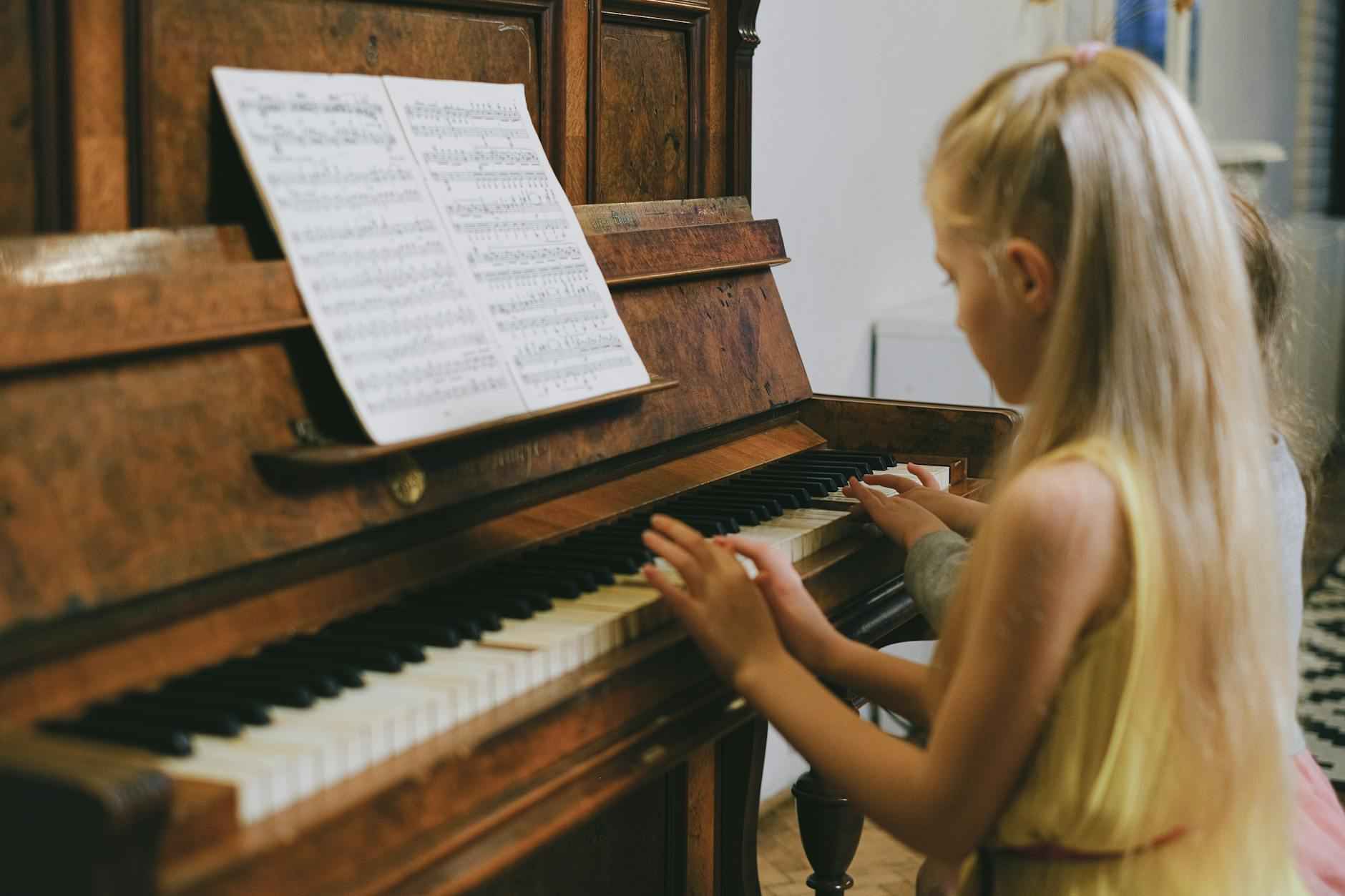
Evaluating Credentials and Experience
When it comes to learning the piano, the qualifications and experience of your teacher can profoundly influence your musical journey. Selecting an instructor is not merely about finding someone who can play well; it’s about finding a mentor who can effectively guide you through the complexities of music. A well-qualified teacher, armed with formal training, relevant certifications, and substantial teaching experience, can make a significant difference in your learning experience. This article delves into the essential aspects of evaluating piano teachers, ensuring that you make an informed choice.
Formal training in music education is a strong indicator of a teacher’s capability. Instructors who have undergone rigorous training at music schools or conservatories often possess a deeper understanding of music theory, technique, and pedagogy. Certifications from recognized music organizations can further validate a teacher’s expertise. For instance, a teacher certified by the Music Teachers National Association (MTNA) demonstrates a commitment to high standards in teaching. Such qualifications not only reflect a teacher’s knowledge but also their dedication to continuous professional development.
Imagine walking into a lesson with a teacher who can articulate the nuances of music theory, helping you understand not just how to play a piece but why it sounds the way it does. This depth of knowledge can inspire you and foster a greater appreciation for the art of music.
While formal education is essential, experience in teaching is equally valuable. A teacher with years of experience has likely encountered various learning styles and challenges, equipping them with the tools to adapt their methods to fit your needs. Such instructors have refined their teaching techniques over time, often finding innovative ways to communicate complex concepts in an accessible manner.
For example, a seasoned teacher might share anecdotes from their own learning experiences, making lessons relatable and engaging. They can offer practical insights on overcoming common obstacles, such as stage fright or difficulty with particular techniques. This blend of experience and empathy can create a supportive learning environment where you feel comfortable expressing your challenges.
It’s essential to consider the balance between a teacher’s performance background and their teaching experience. While a teacher who has performed professionally may bring a wealth of knowledge about the music industry and performance techniques, it’s crucial that they also possess the skills to teach effectively. Not all great musicians make great teachers. The ability to convey information clearly and adapt to a student’s learning style is paramount.
When evaluating potential instructors, ask about their teaching philosophy. Do they focus on building a solid foundation in technique, or do they prioritize creativity and self-expression? Understanding their approach can help you determine if it aligns with your learning goals.
Moreover, consider the genres they specialize in. Some teachers may excel in classical music, while others might have a knack for jazz or contemporary styles. Finding a teacher who resonates with your musical interests can enhance your learning experience and keep you motivated.
In addition to qualifications and experience, it’s beneficial to look for teachers who actively engage with their students outside of lessons. Those who participate in community music events, workshops, or online forums often bring a vibrant energy to their teaching. This involvement can provide you with additional resources and opportunities to grow as a musician.
Ultimately, the right teacher can empower you to reach your musical aspirations. They can instill confidence, foster creativity, and guide you through the intricacies of piano playing. As you embark on your search for the perfect instructor, remember to consider not only their qualifications but also their ability to connect with you on a personal level.
In summary, evaluating a piano teacher’s credentials and experience is a multifaceted process that goes beyond mere qualifications. By considering their formal training, years of teaching experience, performance background, and teaching style, you can find an instructor who will not only enhance your skills but also inspire your passion for music. As you embark on this journey, keep in mind that the right teacher can transform your learning experience, making it not just educational but also enjoyable.
Teaching Experience vs. Performance Background
When seeking a piano teacher, it’s essential to recognize that teaching experience and performance background are two distinct yet equally important aspects to consider. Performance experience can certainly add a layer of credibility to an instructor; however, the ability to convey knowledge effectively is a different skill set altogether. This nuanced understanding is crucial when evaluating potential instructors, as the right balance between these two elements can significantly enhance your learning experience.
Imagine walking into a music studio where the teacher has played on grand stages, captivating audiences with their talent. It’s easy to be impressed by their performance accolades and assume they will be equally effective in teaching you. However, the reality is that a great performer doesn’t always translate to a great teacher. Just because someone can play beautifully doesn’t mean they can break down complex concepts into digestible lessons for a student. This is where the importance of teaching experience comes into play.
Effective teaching requires a set of skills that goes beyond mere musical talent. It involves patience, the ability to communicate clearly, and a deep understanding of how different students learn. A teacher with extensive experience in the classroom may have developed strategies to engage students of all levels, adapting their methods to suit individual needs. For instance, they might know how to encourage a shy student to express themselves or how to challenge a more advanced learner without overwhelming them.
Finding a teacher who balances performance experience with teaching expertise can be a game-changer. For example, consider a teacher who has not only performed in prestigious venues but has also spent years honing their teaching techniques. They might use their performance background to inspire students, sharing personal anecdotes from their musical journey that resonate with learners. This storytelling aspect can make lessons more relatable and engaging.
Moreover, a teacher with a rich performance background might introduce students to various musical styles and techniques that they have mastered, providing a well-rounded education. However, it’s crucial to ensure that their teaching methods are equally robust. A good approach is to ask potential teachers how they incorporate their performance experience into their lessons. Do they share tips on stage presence? Do they offer insights into the nuances of live performance? These questions can help you gauge how their background enhances their teaching.
Every student is unique, and a great teacher recognizes this. While performance accolades can impress, it’s the ability to tailor lessons to individual learning styles that truly matters. For instance, a teacher might notice that a student struggles with rhythm and, drawing from their performance experience, introduce engaging exercises that make learning fun and interactive. They could incorporate games or use popular songs that the student enjoys, making practice feel less like a chore and more like a rewarding experience.
Additionally, a teacher’s approach to feedback can reveal much about their effectiveness. Constructive criticism is vital in any learning process, and a skilled teacher will know how to deliver it in a way that motivates rather than discourages. They might share their own challenges faced during their performance career, creating a space for students to feel safe in their learning journey. This humanizing aspect of teaching fosters a supportive environment where students can thrive.
Furthermore, it’s essential to consider the teacher’s ability to foster a growth mindset in their students. A teacher who encourages perseverance and resilience, drawing on their own experiences of overcoming obstacles in their performance career, can inspire students to push through challenges. This mindset is crucial for anyone learning a musical instrument, as progress often comes with its fair share of frustrations.
In conclusion, while a teacher’s performance background adds value, their teaching experience and ability to connect with students are what ultimately determine their effectiveness. When searching for a piano instructor, consider asking about their teaching philosophy and how they integrate their performance experiences into their lessons. By prioritizing both aspects, you can find a teacher who not only inspires you but also equips you with the skills necessary to flourish as a musician.
Specializations and Genres
When it comes to learning the piano, one of the most significant factors that can influence your journey is the choice of your instructor. Not all teachers are created equal; some have a deep-rooted passion for specific musical genres, whether it’s the elegance of classical, the improvisational spirit of jazz, or the catchy rhythms of pop. Finding a teacher who resonates with your musical interests can profoundly enhance your learning experience, making it not just educational but also enjoyable.
Imagine walking into a lesson where the teacher effortlessly plays your favorite songs, be it a timeless Chopin piece, a lively jazz standard, or a contemporary pop hit. This connection can ignite your passion for music and motivate you to practice more diligently. For instance, a student interested in jazz might benefit from a teacher who not only plays jazz but also understands its rich history and improvisational techniques. This teacher could share stories of legendary jazz musicians, making the learning process vibrant and engaging.
To find the right teacher, start by reflecting on your musical preferences. Are you drawn to the structured beauty of classical music, or do you prefer the freedom and spontaneity of jazz? Perhaps you enjoy the catchy melodies of pop music? Identifying your genre can help narrow down your search. Many music schools and private instructors list their specialties, so be sure to inquire about their experience in your preferred style.
Furthermore, consider the teaching methods employed by potential instructors. Some may focus heavily on theory and technique, while others might prioritize creativity and expression. If you thrive in a structured environment, a classical teacher might be ideal. Conversely, if you enjoy improvisation and experimentation, a jazz-focused instructor could be more suited to your learning style. This alignment can significantly enhance your motivation and engagement during lessons.
Choosing a teacher who specializes in a genre that resonates with you can lead to a more fulfilling learning experience. For example, a classical piano teacher can provide you with a solid foundation in technique and theory, essential for mastering the intricacies of the genre. They can introduce you to the works of great composers, helping you appreciate the depth and complexity of classical music.
On the other hand, a jazz teacher can teach you how to improvise, encouraging you to express yourself musically. They might introduce you to the concept of “playing by ear,” which can be liberating for many students. The ability to improvise and create music in the moment can be incredibly empowering, allowing you to develop a unique musical voice.
In addition to enhancing your technical skills, genre-specific instruction can also foster a sense of community. Many music genres have rich cultures and histories, and learning from a teacher who is immersed in that world can provide you with valuable insights. For instance, a jazz teacher might encourage you to attend local jam sessions or connect you with other musicians, expanding your network and enhancing your musical journey.
Moreover, teachers who specialize in a particular genre often have a wealth of resources at their disposal, including sheet music, recordings, and performance opportunities. This access can enrich your learning experience and provide you with a broader understanding of the music you love.
As you embark on your piano journey, consider the importance of finding a teacher who aligns with your musical interests. This choice can make all the difference in your learning experience, transforming it from a mere obligation into a joyful exploration of sound and creativity. Take the time to research, ask questions, and even schedule trial lessons with potential instructors. This process will not only help you find the right fit but also set the stage for a rewarding musical adventure.
In conclusion, the journey of learning the piano is as much about the connection with your teacher as it is about the notes you play. By choosing an instructor who specializes in a genre that speaks to you, you open the door to a world of musical possibilities. Whether you aspire to perform on stage or simply play for your own enjoyment, the right teacher can guide you through the nuances of your chosen genre, making every lesson a step toward achieving your musical dreams.

Trial Lessons: A Smart Approach
Exploring the world of piano lessons can be an exciting yet daunting task, especially for beginners. One of the best ways to ensure you find the right teacher is by taking advantage of trial lessons. These sessions not only allow you to evaluate a teacher’s compatibility with your learning style but also provide insight into their teaching methodology. This article will delve into the importance of trial lessons, what to expect during these sessions, and how to make the most of this opportunity.
Trial lessons serve as a crucial stepping stone in your musical journey. They offer a unique chance to experience firsthand how a teacher conducts their classes. Imagine stepping into a warm, inviting studio, the scent of polished wood and the sound of soft piano notes filling the air. This environment sets the stage for a productive learning experience. During these initial sessions, you can assess not only the teacher’s technical skills but also their interpersonal dynamics.
As you engage in a trial lesson, pay close attention to how the teacher communicates. Are they approachable? Do they encourage questions? Their ability to explain concepts clearly and patiently can significantly affect your learning curve. Remember, this is your opportunity to gauge whether their teaching style resonates with you. If you prefer a more structured approach, a teacher who emphasizes discipline and technique may be ideal. Conversely, if you thrive in a more relaxed environment, look for someone who fosters creativity and exploration.
To maximize your trial lesson experience, come prepared with specific goals in mind. Consider what you hope to achieve: Is it mastering a particular piece, improving your sight-reading skills, or simply enjoying the process of learning music? Having clear objectives will not only guide the lesson but also help the teacher tailor their approach to suit your needs.
During the lesson, take notes on the following aspects:
- Teaching Style: Does the teacher use visual aids, hands-on demonstrations, or verbal explanations?
- Communication: Are they easy to understand? Do they listen to your feedback?
- Engagement: How do they keep you motivated? Do they incorporate fun activities or relevant music?
After the lesson, reflect on your experience. Did you feel comfortable? Were your questions answered satisfactorily? This reflection is vital in deciding whether to continue with this teacher or explore other options.
While many teachers are dedicated professionals, not every instructor will be the right fit for you. During your trial lesson, it’s essential to remain vigilant for any potential red flags. For example, if a teacher exhibits a lack of patience or fails to adapt their teaching methods to your learning pace, it may be an indication that they are not the best match. Additionally, if you feel rushed or pressured during the lesson, this could hinder your learning experience.
Moreover, communication is key. If the teacher struggles to articulate concepts or seems disinterested in your progress, these are signs to consider. Remember, a good teacher should not only impart knowledge but also inspire and motivate you to reach your musical goals.
To further assist you in making an informed decision, here’s a simple table to compare potential teachers based on your trial lesson experiences:
| Teacher Name | Teaching Style | Communication Skills | Engagement Level | Notes |
|---|---|---|---|---|
| Teacher A | Structured | Excellent | High | Great with beginners |
| Teacher B | Relaxed | Good | Medium | Focuses on creativity |
| Teacher C | Traditional | Poor | Low | Not a good fit |
Ultimately, your musical journey is a personal one, and finding the right teacher can make all the difference. By taking advantage of trial lessons, you can ensure that your piano education is tailored to your needs, fostering not only skill development but also a deep love for music. So, embrace this opportunity, and let your passion for piano flourish!
What to Expect in a Trial Lesson
When embarking on your piano journey, the prospect of a trial lesson can be both exciting and nerve-wracking. This initial session is critical, as it sets the stage for your future learning and helps you determine if the teacher is the right fit for you. During this time, you will likely delve into fundamental concepts while also assessing your current skill level. It’s essential to observe how the teacher interacts with you and their ability to communicate ideas effectively. A good connection can make all the difference in your learning experience.
One of the most telling aspects of a trial lesson is the teacher’s engagement with you. A skilled instructor will not only present information but will also encourage questions and foster a dialogue. Pay attention to how they respond to your inquiries. Do they take the time to explain concepts thoroughly? Are they patient and understanding, or do they seem rushed? These interactions can provide valuable insight into their teaching style.
For instance, during my own trial lesson, my teacher took the time to ask about my musical background and what I hoped to achieve. This personalized approach made me feel valued and motivated. It’s crucial that you feel comfortable expressing your thoughts and concerns, as this will enhance your learning experience.
As you navigate through the trial lesson, observe the teaching methods employed by your instructor. Are they using a structured approach, or do they adapt their teaching style to fit your needs? Some teachers may focus heavily on theory, while others might prioritize hands-on practice. Understanding their methodology can help you gauge whether it aligns with your learning preferences.
For example, if you thrive on practical application, a teacher who emphasizes playing pieces rather than solely discussing theory might be more beneficial for you. Conversely, if you enjoy delving into the mechanics of music, a more theoretical approach could be advantageous. Remember, the goal is to find a balance that suits your learning style.
While many aspects of a trial lesson will be positive, it’s also crucial to remain vigilant for any red flags. A teacher who displays impatience, poor communication skills, or a rigid teaching style may not be the best fit for your needs. For instance, if you find yourself feeling more confused than enlightened after explanations, it might be a sign to look for someone else.
Additionally, take note of how the teacher responds to mistakes. A supportive instructor will guide you through errors, providing constructive feedback rather than criticism. If you sense a lack of encouragement or understanding, it may be wise to continue your search for a more compatible teacher.
| Positive Indicators | Red Flags |
|---|---|
| Engages in meaningful dialogue | Shows impatience or frustration |
| Adapts teaching methods to your style | Uses a one-size-fits-all approach |
| Provides constructive feedback | Critiques without guidance |
Ultimately, a trial lesson serves as a window into the potential of your musical education. By paying close attention to the dynamics of the session, you can make an informed decision about whether to continue with this instructor. Remember, finding the right teacher is a vital step in your piano journey, and it should feel like a partnership rather than a one-sided transaction.
In conclusion, a trial lesson is not just a formality; it is an essential opportunity to evaluate both your skills and the teaching approach of your potential instructor. Embrace this experience with an open mind and a willingness to learn. After all, the right teacher can ignite your passion for music and guide you on the path to becoming a proficient pianist.
Red Flags to Watch For
Finding the right piano teacher can be a transformative experience, but it’s important to recognize that not every instructor will suit your individual learning style. As you embark on this musical journey, remain vigilant for signs that a teacher might not be the best fit for you. Red flags can manifest in various ways, such as a teacher’s interpersonal skills, their approach to teaching, and their overall attitude towards students. This article will provide insights into what to look for, ensuring that your piano lessons are both enjoyable and effective.
Compatibility between a student and a teacher is crucial for a successful learning experience. A teacher’s patience is one of the most essential qualities to consider. If you notice that a teacher frequently becomes frustrated or dismissive when you struggle with a concept, it may be a sign that they lack the necessary patience to guide you through the learning process. Every student learns at their own pace, and a good teacher should encourage and support you, rather than make you feel inadequate.
Another significant factor is communication. Effective communication is the backbone of any teaching relationship. If a teacher struggles to explain concepts clearly or fails to check in on your understanding, it could hinder your progress. A teacher should be able to break down complex ideas into manageable parts, using language and examples that resonate with you. If you find yourself confused after a lesson, it might be time to reevaluate your choice.
Additionally, be wary of a rigid teaching style. While structure can be beneficial, a teacher who adheres too strictly to a predetermined curriculum may not be able to adapt to your unique needs and interests. For instance, if you’re passionate about jazz but your teacher insists on focusing solely on classical techniques, you may find your enthusiasm waning. A good teacher should be flexible and willing to tailor their approach to align with your personal goals.
Every teacher has a distinct teaching philosophy that shapes their methods. Some may prioritize technical proficiency, while others might focus on creativity and expression. Take the time to reflect on what resonates with you. If a teacher’s philosophy does not align with your vision for your musical journey, it could lead to frustration and disengagement. Engaging in a discussion about their teaching approach during an initial meeting can provide valuable insights into whether their style matches your learning preferences.
Moreover, consider the teacher’s experience in handling diverse learning styles. A teacher who has worked with various students will likely possess a broader toolkit of strategies to help you succeed. Ask about their experience with students who have similar goals or challenges as you. A teacher who can share success stories and demonstrate adaptability in their teaching methods is often a good sign of someone who can meet your needs.
Before committing to a long-term arrangement, many teachers offer trial lessons. This is an excellent opportunity to gauge not only their teaching style but also how they interact with you personally. During these lessons, pay attention to how comfortable you feel asking questions. If you find yourself hesitant to speak up or if the teacher seems disinterested in your input, these are significant indicators that the relationship may not be a good fit.
Additionally, observe their enthusiasm for teaching. A passionate instructor can inspire and motivate you, while a teacher who appears disengaged may stifle your interest in learning. The energy in the room can greatly influence your experience, so trust your instincts about the overall atmosphere during the trial lesson. A positive, encouraging environment can make a world of difference in your learning journey.
In conclusion, choosing the right piano teacher is a vital step in your musical education. By being aware of red flags such as a lack of patience, poor communication, or a rigid teaching style, you can make a more informed decision. Remember that the goal is to find someone who not only teaches you how to play but also inspires you to grow as a musician. Trust your instincts, ask questions, and don’t hesitate to explore different options until you find the perfect match for your unique learning style.
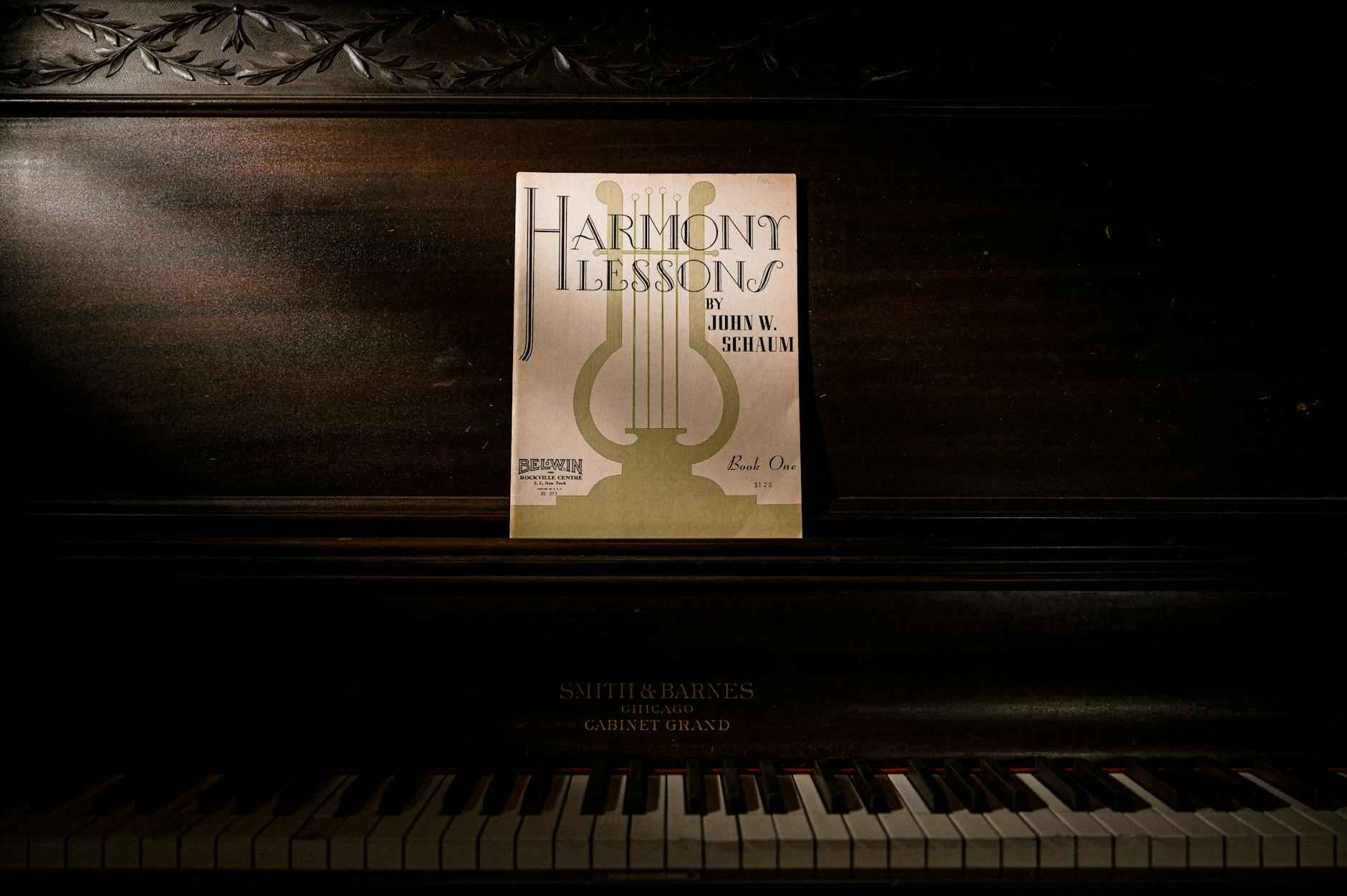
Setting a Budget for Piano Lessons
Understanding the financial commitment involved in piano lessons is crucial for anyone looking to embark on this musical journey. The cost of lessons can vary significantly based on factors such as the teacher’s experience, location, and the duration of each lesson. For many aspiring pianists, the question of affordability becomes a pivotal consideration that can influence their decision to begin or continue lessons.
When searching for piano lessons, it’s not just about finding a teacher; it’s also about finding one that fits within your budget. Prices can range from as low as $30 to over $100 per hour, depending on various factors. For instance, a highly experienced teacher with a strong background in music education might charge more, but the investment often pays off in the quality of instruction received. Conversely, newer instructors may offer competitive rates as they build their clientele, providing a great opportunity for students looking to save.
To give you a clearer picture, here’s a breakdown of average costs associated with piano lessons:
| Lesson Duration | Average Cost |
|---|---|
| 30 Minutes | $15 – $50 |
| 1 Hour | $30 – $100 |
| 1.5 Hours | $45 – $150 |
These figures can serve as a guideline, but it’s important to remember that local market conditions can affect pricing. For example, urban areas often see higher rates than rural locations. Additionally, some teachers may offer sliding scales based on the student’s financial situation, making lessons more accessible.
Many piano teachers provide discounts for bulk lessons or group classes. This not only makes lessons more affordable but also fosters a sense of community among students. For instance, if you commit to a package of ten lessons, you might receive a discount of up to 10-20%, which can add up to significant savings over time.
Group lessons can also be a fun and engaging way to learn. They allow students to share experiences, learn from each other, and often reduce the cost per person. However, it’s essential to ensure that the group size remains manageable so that each student receives adequate attention from the teacher.
As you consider your budget, it’s equally important to set realistic expectations for your progress. Learning an instrument is a journey that requires time, patience, and consistent practice. Think about what you hope to achieve through your lessons. Are you aiming to play for personal enjoyment, or do you have aspirations of performing publicly?
Setting achievable goals can help maintain your motivation. For instance, rather than aiming to master an entire piece quickly, focus on smaller sections. Celebrate your progress, whether it’s perfecting a tricky passage or finally being able to play a favorite song. This approach not only enhances your skills but also makes the learning process more enjoyable.
In addition to financial considerations, keep in mind the importance of finding a teacher who aligns with your learning style and goals. A good instructor will not only teach you the technical aspects of playing but will also inspire you and help you develop a love for music.
Ultimately, the financial commitment to piano lessons is an investment in your musical future. By understanding the costs involved, exploring various pricing options, and setting clear goals, you can make informed decisions that will enrich your learning experience. Remember, every note played and every lesson learned is a step towards becoming the pianist you aspire to be.
In conclusion, while the journey of learning piano can come with its financial challenges, the rewards of musical expression and personal growth are immeasurable. Embrace the process, stay committed to your practice, and enjoy the beautiful melodies that await you.
Average Costs and Pricing Structures
When it comes to embarking on your piano journey, understanding the financial aspect is crucial. Piano lessons can be a significant investment, with prices typically ranging from $30 to $100 per hour. This variability largely depends on factors such as the teacher’s experience, location, and the lesson format. To ensure you receive fair value for your investment, it’s essential to familiarize yourself with local pricing and what influences these costs.
Several elements contribute to the pricing of piano lessons. Firstly, the experience and qualifications of the instructor play a pivotal role. A teacher with extensive training and a strong performance background may charge more than a novice instructor. Additionally, the location of the lessons can impact pricing; urban areas often have higher costs compared to rural settings due to demand and living expenses.
Moreover, the lesson format can also influence the price. One-on-one lessons typically cost more than group classes, but they offer personalized attention that can accelerate your learning. Some teachers may even offer online lessons, which can be a more affordable option while still providing quality instruction. To give you a better idea of what to expect, here’s a breakdown of average costs:
| Lesson Type | Average Cost |
|---|---|
| Private Lessons | $50 – $100 per hour |
| Group Lessons | $30 – $60 per hour |
| Online Lessons | $30 – $80 per hour |
Understanding these factors will help you make an informed decision when selecting a piano teacher that fits your budget and learning style.
Once you have a grasp of the average costs, the next step is to find a teacher who not only fits your budget but also aligns with your learning goals. Start by exploring local listings, online directories, and community boards. You might also find valuable insights through online reviews and testimonials from former students. These can provide a glimpse into a teacher’s effectiveness and teaching style, helping you gauge whether they are a good fit for your needs.
Don’t forget to leverage the power of word-of-mouth recommendations. Friends, family, or fellow musicians can often point you toward reputable instructors who may not be as visible online. Their firsthand experiences can save you time and help you avoid potential pitfalls.
As you compile your list of potential teachers, consider reaching out to them for a quick chat. This can provide insight into their teaching philosophy and whether it resonates with you. Remember, the right teacher can make all the difference in your learning experience.
Once you’ve selected a teacher, it’s essential to maximize your investment. Many instructors offer discounts for bulk lessons or package deals, which can significantly reduce your overall costs. Inquire about these options during your initial conversation; they might also provide flexibility in scheduling that accommodates your busy lifestyle.
Establishing a consistent practice routine is crucial for progress. Work with your instructor to develop a schedule that allows you to practice regularly. This might mean setting aside a few minutes each day rather than cramming in long sessions once a week. Short, focused practice times can often yield better results.
Additionally, setting achievable goals can keep you motivated throughout your learning journey. Celebrate milestones, whether it’s mastering a challenging piece or improving your technique. These small victories will help maintain your enthusiasm and commitment to learning.
In conclusion, understanding the average costs and pricing structures of piano lessons can significantly enhance your learning experience. By researching local prices, finding a teacher within your budget, and maximizing your investment through consistent practice and goal-setting, you can embark on a rewarding musical journey. Remember, the key is to stay engaged, be patient with yourself, and enjoy the process of learning to play the piano.
Discounts and Packages
When embarking on your piano learning journey, it’s essential to consider the financial aspects involved. Many aspiring pianists often overlook the potential savings available through discounts and package deals offered by teachers. These options can significantly reduce the cost of lessons while still ensuring you receive quality instruction. Imagine being able to enjoy the thrill of playing the piano without breaking the bank! By exploring group classes or bulk lesson packages, you can make your musical aspirations more achievable.
Discounts for bulk lessons or group classes are not just about saving money; they also foster a sense of community among students. Group classes can create a supportive environment where learners motivate each other. Picture a vibrant classroom filled with laughter and music as students share their progress and challenges. This social aspect can enhance your learning experience, making each lesson more enjoyable and engaging.
Moreover, many instructors offer tiered pricing structures that reward commitment. For instance, you might find that purchasing a package of ten lessons earns you a discount of 10-20%. This not only makes your education more affordable but also encourages regular practice, which is crucial for mastering the piano.
When inquiring about discounts, it’s helpful to know the various types of packages that might be available. Here are a few common options:
| Package Type | Description | Typical Savings |
|---|---|---|
| Bulk Lessons | Purchase a set number of lessons (e.g., 5, 10, or 20) at a reduced rate. | 10-20% off |
| Group Classes | Join a class with multiple students, allowing for shared learning experiences. | 15-30% off |
| Seasonal Promotions | Special discounts during holidays or back-to-school seasons. | Varies |
By understanding these options, you can make informed decisions that align with your budget and learning style. Don’t hesitate to ask potential teachers about their available packages and any ongoing promotions. A simple inquiry could lead to significant savings!
To truly maximize your savings, consider combining different offers. For example, if a teacher is running a seasonal promotion, you can stack that discount on top of a bulk lesson package. This strategy not only lowers your overall costs but also ensures you receive consistent instruction, which is key to progress.
Additionally, some teachers may offer referral discounts. If you have friends or family interested in learning piano, inviting them to join your lessons could earn you both a discount. This not only makes lessons more affordable but also provides a familiar face to share the learning experience with.
As you navigate through these options, remember that the goal is not only to save money but also to invest in your musical education. Quality instruction is invaluable, and finding a balance between affordability and expertise is essential.
In conclusion, exploring discounts and package deals can significantly enhance your piano learning journey. By taking advantage of these opportunities, you can enjoy a fulfilling musical experience without the stress of financial strain. So, reach out to local instructors, ask about their offerings, and embark on your journey to becoming a skilled pianist.
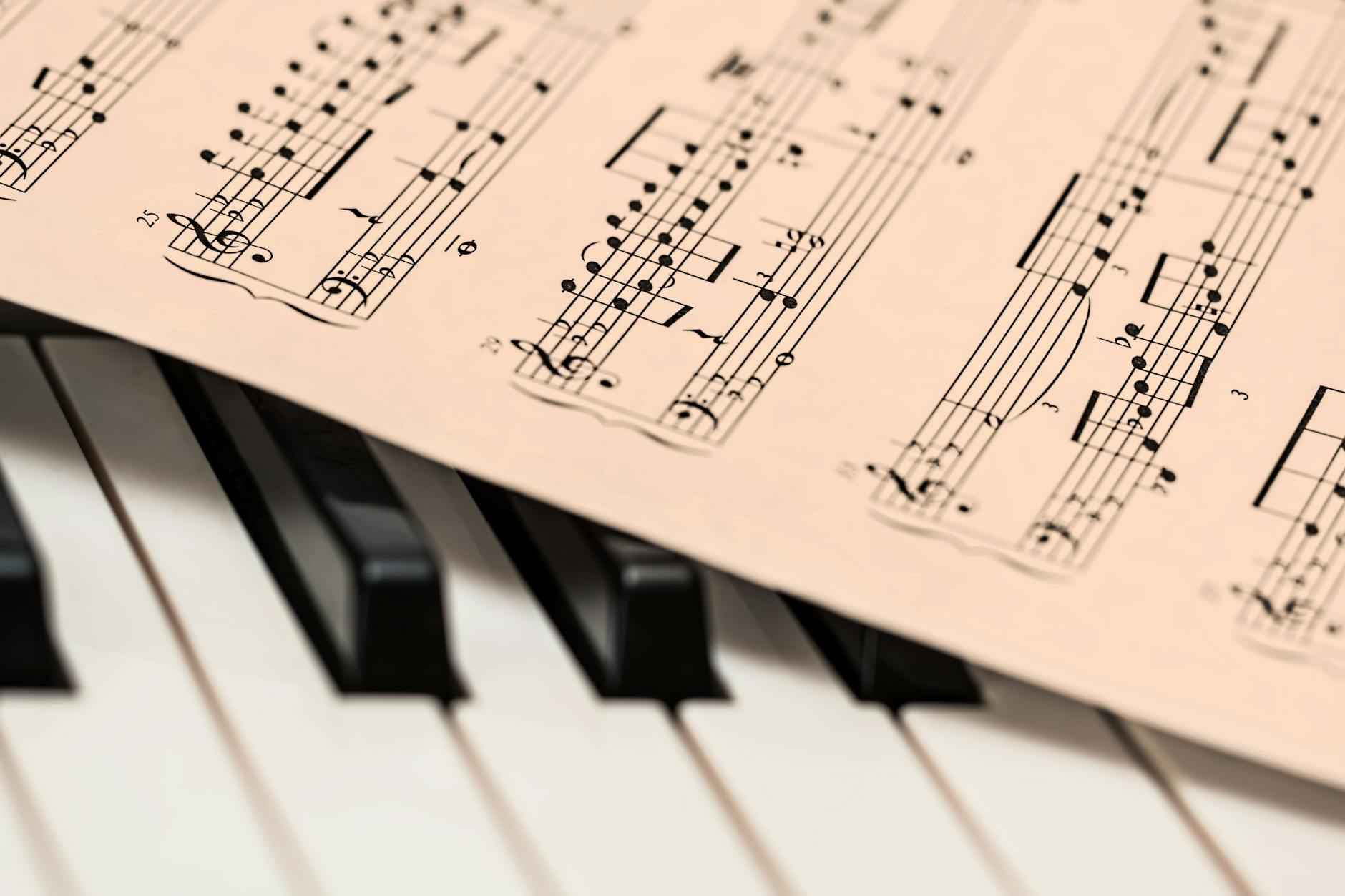
Creating a Practice Schedule
Establishing a consistent practice routine is essential for anyone looking to progress in their piano journey. Once you find a teacher who resonates with your learning style and goals, the next step is to collaborate with them to create a practice schedule that fits seamlessly into your daily life. This is where the magic of learning truly begins, as a well-structured routine can lead to significant improvements over time.
Working closely with your instructor to develop a personalized practice schedule is crucial. Consider your current commitments and lifestyle—whether you are a busy professional, a student, or a parent juggling multiple responsibilities. Communication is key; discuss your availability with your teacher and be open about any constraints you might have. This ensures that the practice schedule is not only realistic but also sustainable.
For example, if you are someone who finds it challenging to dedicate long hours to practice, your teacher might suggest shorter, more frequent sessions throughout the week. This can be more effective than infrequent marathon practices. A typical week could look something like this:
| Day | Practice Duration | Focus Area |
|---|---|---|
| Monday | 30 minutes | Technique Exercises |
| Wednesday | 45 minutes | Learning New Piece |
| Friday | 30 minutes | Review and Refine |
| Saturday | 1 hour | Play for Fun/Improvisation |
This structured approach allows for focused practice and helps to avoid burnout. Remember, consistency is more important than the duration of each session. A few minutes every day can lead to remarkable progress over time.
Finding the time to practice can often feel like a daunting task, especially in our fast-paced world. However, integrating practice into your daily routine can make it feel less like a chore and more like a natural part of your day. Consider setting aside a specific time each day that works best for you—perhaps early in the morning when the house is quiet or in the evening after dinner.
Additionally, try to make your practice environment inviting and inspiring. Set up your piano in a well-lit area, free from distractions, and surround yourself with items that motivate you, such as sheet music of your favorite songs or inspirational quotes from famous musicians. This creates a positive atmosphere that encourages you to engage with your practice more willingly.
Another vital aspect of maintaining a consistent practice schedule is setting achievable goals. These goals serve as milestones on your musical journey, keeping you motivated and focused. Start with small, manageable objectives, such as mastering a specific scale or playing through a piece without mistakes. As you achieve these goals, celebrate your progress, no matter how minor it may seem. This could be as simple as treating yourself to a favorite snack or sharing your accomplishment with friends and family.
Moreover, keeping a practice journal can be incredibly beneficial. Document your daily practice sessions, noting what you worked on, what you found challenging, and what you enjoyed. This reflection not only helps you track your progress but also reinforces your commitment to your learning process. Over time, you’ll be able to look back and see how far you’ve come, which can be a powerful motivator to keep going.
In conclusion, creating a practice schedule that works for you is a vital step in your piano learning journey. By collaborating with your teacher, integrating practice into your daily life, and setting achievable goals, you can cultivate a fulfilling and productive practice routine. Remember, the journey of learning an instrument is not just about the destination; it’s about enjoying the process and discovering the joy of music along the way.
Balancing Practice with Daily Life
Finding time to practice piano in the midst of a hectic schedule can often feel like an uphill battle. Many aspiring musicians grapple with the challenge of managing their time effectively while trying to nurture their passion for music. Whether you’re juggling work, family commitments, or social obligations, it’s essential to carve out moments for your piano practice. Instead of aiming for lengthy sessions that may become daunting and infrequent, consider the power of short, focused practice intervals. This approach not only maximizes your learning but also keeps your enthusiasm alive.
Imagine this: you’ve just finished a long day at work, and the last thing you want to do is sit down for an hour of piano practice. The thought of it might even feel overwhelming. However, by breaking your practice into smaller, manageable chunks—say, 15 to 20 minutes—you can transform practice into an enjoyable ritual rather than a chore. This method allows you to engage with the instrument without the pressure of committing to a long session.
Research suggests that short, concentrated periods of practice can lead to better retention of skills and concepts. In fact, renowned pianist Lang Lang emphasizes the importance of quality over quantity in practice. He once said, “It’s not about how long you play, but how effectively you use that time.” This philosophy resonates deeply, especially for those with busy lives. By focusing on specific techniques or pieces during your short sessions, you can make significant progress without feeling drained.
Establishing a practice schedule that aligns with your lifestyle is crucial. Begin by assessing your daily commitments and identifying pockets of time that can be dedicated to practice. Perhaps you can wake up a bit earlier, utilize your lunch break, or even practice for a few minutes before bed. The goal is to integrate these short sessions into your routine seamlessly.
To help you visualize your practice schedule, consider using a simple table:
| Day | Time | Focus Area |
|---|---|---|
| Monday | 7:00 AM – 7:20 AM | Scales and Warm-ups |
| Wednesday | 12:30 PM – 12:50 PM | New Piece Practice |
| Friday | 8:00 PM – 8:20 PM | Technique Exercises |
This structured approach not only keeps you accountable but also allows for flexibility. If a day gets too busy, you can easily adjust your practice time without feeling guilty for missing a long session.
Another effective strategy is to set achievable goals for each practice session. Rather than overwhelming yourself with lofty ambitions, focus on small milestones. For example, mastering a few measures of a new piece or perfecting a specific chord progression can provide a sense of accomplishment. Celebrating these small victories can significantly boost your motivation and encourage you to continue your practice journey.
Consider keeping a practice journal where you can document your goals and reflect on your progress. Writing about your experiences not only reinforces what you’ve learned but also helps you stay engaged with your musical journey. As you look back on your entries, you’ll be amazed at how far you’ve come, even with just short sessions.
Additionally, don’t hesitate to share your achievements with friends or family. Engaging your support system in your musical journey can provide encouragement and accountability. You might even inspire someone else to start their own practice routine!
Finally, remember that the journey of learning an instrument is not just about the destination but also about enjoying the process. Embrace the challenges and celebrate the small wins along the way. By prioritizing short, focused practice sessions, you can cultivate a fulfilling piano experience that fits seamlessly into your busy life.
Setting Achievable Goals
Embarking on a musical journey, especially learning the piano, can often feel like a daunting task. However, one of the most effective ways to maintain motivation and enthusiasm throughout this process is by setting small, achievable goals. These goals serve as stepping stones, allowing you to celebrate your progress and stay engaged with your learning. Whether you are a beginner just starting out or someone returning to the piano after a long break, understanding how to set and achieve these goals can transform your experience.
Setting goals provides a clear direction and purpose in your piano practice. When you define what you want to achieve, it becomes easier to create a structured plan. For instance, if you aim to master a specific piece, break it down into manageable sections. This not only makes the task less overwhelming but also allows you to experience a sense of accomplishment as you complete each part. Celebrating these small victories is crucial. It reinforces your commitment and adds an element of joy to your practice.
Imagine sitting at the piano, finally playing that tricky passage you’ve been working on for weeks. The thrill of mastering a challenging section can be exhilarating! It is moments like these that remind you why you started playing in the first place. Keeping a practice journal can also help track your progress. Documenting your achievements, no matter how small, serves as a motivating reminder of how far you’ve come.
To effectively set and achieve your piano goals, consider the SMART criteria: Specific, Measurable, Achievable, Relevant, and Time-bound. For example, instead of saying, “I want to get better at piano,” specify, “I will practice scales for 15 minutes each day this week.” This goal is specific and measurable, making it easier to track your progress.
| SMART Criteria | Description |
|---|---|
| Specific | Clearly define what you want to accomplish. |
| Measurable | Establish criteria to track your progress. |
| Achievable | Set realistic goals based on your current skill level. |
| Relevant | Ensure your goals align with your overall musical aspirations. |
| Time-bound | Set a deadline to create a sense of urgency. |
Moreover, consider incorporating a variety of goals into your practice. For example, aim to improve your technical skills one week and focus on musical expression the next. This variety keeps your practice sessions fresh and engaging, preventing burnout.
As you achieve your goals, take the time to celebrate your milestones. This could be as simple as treating yourself to a favorite snack after a productive practice session or sharing your progress with friends and family. Celebrating your achievements not only boosts your motivation but also reinforces positive habits. You might even find joy in performing for loved ones, showcasing your hard work and dedication.
Additionally, consider setting larger goals that span over weeks or months, such as preparing for a recital or learning a new piece. Breaking these larger objectives into smaller, actionable tasks can help maintain your momentum. For instance, if you are preparing for a performance, set weekly goals to learn specific sections of the piece, work on dynamics, or focus on memorization.
Incorporating a mix of short-term and long-term goals creates a balanced approach to your piano learning journey. This strategy not only keeps you motivated but also allows you to enjoy the process of learning and growing as a musician.
Ultimately, the journey of learning the piano is personal and unique to each individual. By setting achievable goals and celebrating your progress, you create a fulfilling and enjoyable experience. Remember, every note played and every piece mastered is a step toward becoming the musician you aspire to be. So, embrace the journey, set those goals, and most importantly, enjoy the music!














